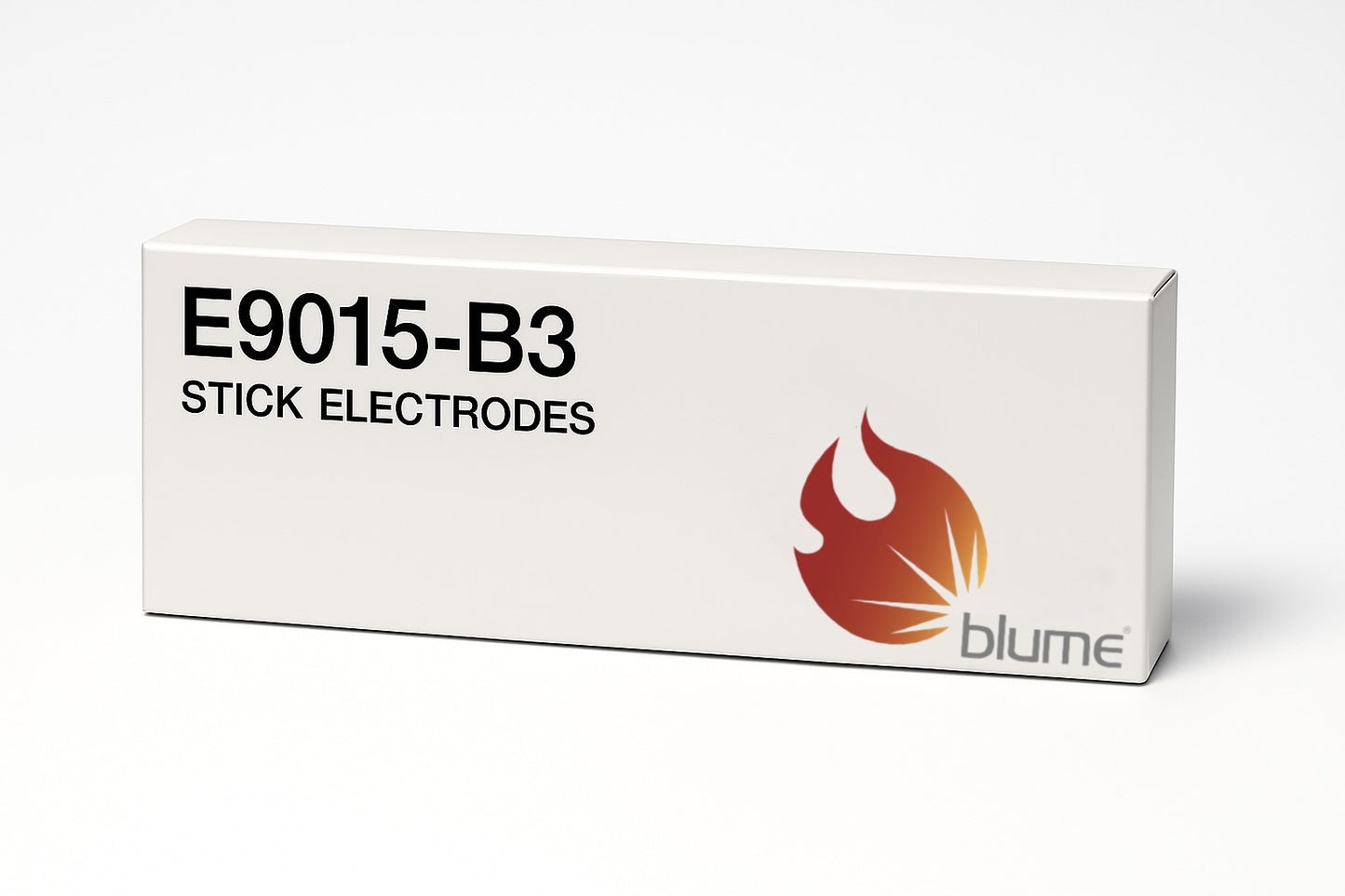Low Alloy Steel Stick Electrodes
BLUME® E9015-B3
BLUME® E9015-B3
Specification: ASME SFA/AWS A5.5 E9015-B3
High Strength and Low-Hydrogen Reliability
For welders tackling heavy-duty, high-strength structural applications, BLUME® E9015-B3 Stick Electrode delivers exceptional mechanical properties, low-hydrogen performance, and consistent arc control. Designed for critical low-alloy steels, this electrode ensures deep penetration, crack resistance, and superior impact toughness, even in demanding industrial environments.
BLUME® E9015-B3 provides smooth arc stability, clean slag removal, and high deposition efficiency, making it the professional choice for pipelines, pressure vessels, bridges, and other high-strength steel structures.
BLUME® E9015-B3 vs Standard E9015-B3

Key Features
Key Features
✅ Low-hydrogen coating – prevents cracking and hydrogen-induced defects
✅ High deposition rate – increases productivity without sacrificing quality
✅ Deep, consistent penetration – ideal for thick sections and root passes
✅ Excellent impact toughness – performs reliably at low temperatures
✅ All-position usability – flat, horizontal, vertical, and overhead welding
✅ Easy slag removal – clean, smooth beads with minimal post-weld cleanup
Recommended Application
Recommended Application
✔ High-strength structural steel fabrication
✔ Pressure vessels and pipeline construction
✔ Offshore and marine structures
✔ Bridges, cranes, and heavy machinery
✔ Petrochemical and power plant fabrication
✔ Critical low-alloy steel repairs
Product Data Sheet
Product Data Sheet
FAQ
FAQ
Q: What base metals can BLUME® E9015-B3 be used on?
A: Designed for low-alloy, high-strength steels, ideal for structural, pressure vessel, and heavy machinery applications.
Q: Can it be used in all welding positions?
A: Yes. BLUME® E9015-B3 is excellent for flat, horizontal, vertical, and overhead welding.
Q: How does BLUME® E9015-B3 differ from E8018-G?
A: E9015-B3 is formulated for higher tensile strength and low-hydrogen performance, while E8018-G is optimized for productivity and deep penetration on HSLA steels.
Q: Is it suitable for low-temperature or cold-weather welding?
A: Yes — it maintains high toughness and ductility even in sub-zero environments.
Q: How should the electrodes be stored?
A: Store in a dry, temperature-controlled environment. If exposed to moisture, rebake at 650°F (340°C) for 1 hour before use.
Share


